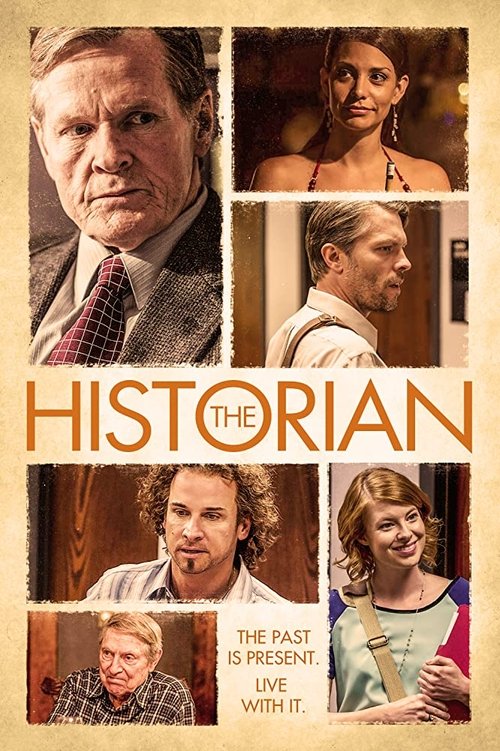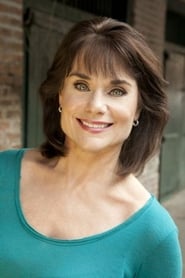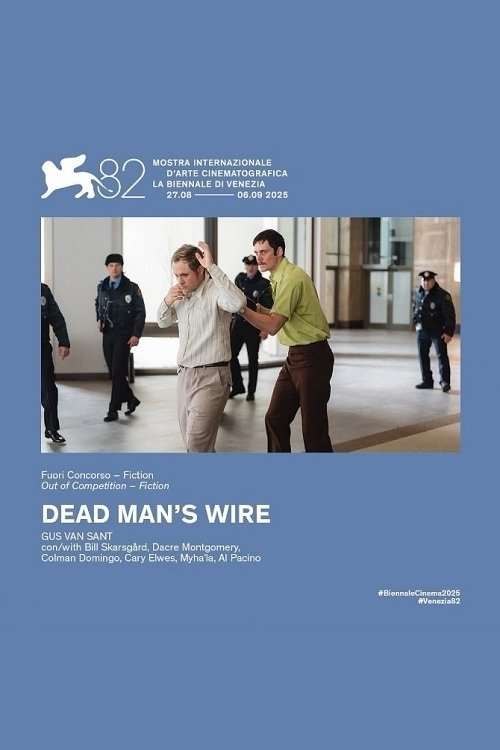
Ask Your Own Question
What is the plot?
What is the ending?
In the ending of "The Historian," the protagonist, a young woman named Helen, confronts the truth about her family's dark past and the legacy of her father, who was involved in a secretive and dangerous quest for knowledge. As she uncovers the final pieces of the puzzle, she faces a choice that will determine her future and the fate of those she loves.
As the film progresses towards its conclusion, Helen finds herself in a dimly lit library, surrounded by ancient texts and artifacts that hold the key to her family's history. The atmosphere is thick with tension as she realizes the weight of the knowledge she has uncovered. Her father, who has been a guiding yet shadowy figure throughout her journey, appears before her, revealing the depths of his obsession with the past and the sacrifices he made in pursuit of it.
In a climactic moment, Helen must decide whether to embrace her father's legacy or forge her own path. The emotional turmoil is palpable as she grapples with feelings of betrayal, love, and the desire for independence. Ultimately, she chooses to reject the dangerous allure of her father's quest, symbolizing a break from the cycle of obsession that has haunted her family.
The film concludes with Helen stepping out of the library into the light, a visual metaphor for her newfound freedom and the hope of a brighter future. The final scenes show her reconnecting with her friends and family, suggesting a reconciliation with her past while looking forward to what lies ahead.
Now, let's delve into the ending in a more detailed, chronological narrative.
As the final act unfolds, Helen stands in the grand, dimly lit library, the air thick with dust and the scent of old books. The flickering candlelight casts shadows on the walls, creating an almost ethereal atmosphere. She clutches an ancient manuscript, her heart racing as she realizes the significance of the words inscribed within. The weight of her family's history presses down on her, and she feels the burden of the secrets that have been kept for generations.
Suddenly, her father, a man whose presence has loomed large throughout her life, steps out from the shadows. His face is lined with the marks of time and obsession, and his eyes gleam with a mix of pride and desperation. He begins to explain the lengths he went to in order to uncover the truth about their lineage, revealing the dark and dangerous paths he traversed. His voice is filled with a fervor that both captivates and terrifies Helen.
As he speaks, Helen's emotions swirl within her. She feels a deep love for her father, but also a profound sense of betrayal. The man she idolized has been consumed by his quest for knowledge, and she realizes that this obsession has cost them both dearly. The tension escalates as she confronts him, demanding to know if the pursuit of this knowledge was worth the pain it has caused their family.
In a moment of vulnerability, her father admits that he lost sight of what truly mattered--his family. He pleads with her to understand that the knowledge he sought was meant to protect them, to give them power over their destiny. But Helen, now standing firm in her convictions, recognizes that this power comes at a price she is unwilling to pay.
With tears in her eyes, she makes her choice. She rejects the legacy of obsession and darkness that her father represents. This pivotal moment is charged with emotion, as Helen steps back from the brink of a path that could lead to her own destruction. The library, once a place of secrets, transforms into a symbol of her liberation.
As she turns to leave, the light from the outside world spills into the library, illuminating her path. This visual shift signifies her break from the past and her determination to forge her own identity. Helen steps into the light, a stark contrast to the shadows that have defined her family's history.
The final scenes depict Helen reconnecting with her friends and family, a poignant reminder of the importance of relationships over the pursuit of knowledge. She embraces her loved ones, her face reflecting a mixture of relief and hope. The film closes with a sense of renewal, as Helen looks toward the future, ready to embrace life on her own terms.
In the end, Helen's father is left in the library, a figure of lost potential, while she walks away, symbolizing the choice to prioritize love and connection over the dangerous allure of knowledge. The film leaves viewers with a powerful message about the importance of understanding one's past while choosing to create a future free from its burdens.
Is there a post-credit scene?
The movie "The Historian," produced in 2014, does not feature a post-credit scene. The film concludes its narrative without any additional scenes or content after the credits roll. The story wraps up with a focus on the main characters and their journeys, leaving no further revelations or cliffhangers for the audience to ponder after the film ends.
What is the significance of the book that the protagonist discovers?
The book that the protagonist, a young woman named Elizabeth, discovers is a crucial element of the story. It is an ancient manuscript that contains secrets about the historical figure of Vlad the Impaler and his connection to the vampire legend. This book serves as a catalyst for Elizabeth's journey, leading her to uncover dark truths about her family's past and the ongoing battle against a vampire cult.
How does Elizabeth's relationship with her mother influence her quest?
Elizabeth's relationship with her mother is strained and complex. Her mother, who is also a historian, has kept secrets about their family's history, particularly regarding the vampire lore. This tension drives Elizabeth to seek answers on her own, pushing her to delve deeper into the mysteries of the past. As she uncovers more about her mother's hidden life and the dangers associated with their lineage, Elizabeth's emotional state shifts from confusion to determination, ultimately shaping her character arc.
What role does the character of Paul play in Elizabeth's journey?
Paul is a pivotal character in Elizabeth's journey, serving as both a mentor and a romantic interest. He is knowledgeable about the historical and supernatural elements that Elizabeth encounters. His guidance helps her navigate the dangers posed by the vampire cult. However, Paul also has his own secrets, which complicate their relationship. His motivations are driven by a desire to protect Elizabeth, but as the story unfolds, his past choices create tension and conflict, adding depth to their dynamic.
What challenges does Elizabeth face while researching her family's history?
As Elizabeth delves into her family's history, she faces numerous challenges, including the threat of the vampire cult that seeks to silence her. She encounters cryptic clues, dangerous adversaries, and the emotional burden of uncovering painful truths about her lineage. Each challenge tests her resolve and intelligence, forcing her to confront not only external dangers but also her own fears and insecurities about her identity and legacy.
How does the setting influence the atmosphere of the film?
The setting of 'The Historian' plays a significant role in creating a haunting and suspenseful atmosphere. The film transitions between various locations, including ancient libraries, dark forests, and eerie castles, each contributing to the sense of mystery and danger. The historical backdrops are richly detailed, enhancing the narrative's connection to the past. The contrast between the serene beauty of the landscapes and the lurking threats of the vampire cult amplifies the tension, immersing the audience in Elizabeth's perilous quest.
Is this family friendly?
The movie "The Historian," produced in 2014, contains several elements that may not be suitable for children or sensitive viewers. Here are some potentially objectionable or upsetting aspects:
-
Violence and Gore: There are scenes that depict violence, including battles and confrontations that may involve bloodshed and graphic imagery.
-
Dark Themes: The film explores themes of betrayal, loss, and the consequences of historical events, which may be heavy for younger audiences.
-
Emotional Distress: Characters experience significant emotional turmoil, including grief and despair, which could be upsetting for sensitive viewers.
-
Supernatural Elements: The presence of supernatural themes may be unsettling for some, particularly if they involve fear or horror.
-
Mature Language: There may be instances of strong language that could be inappropriate for younger audiences.
These elements contribute to a tone that may not be considered family-friendly, and parental discretion is advised.






















